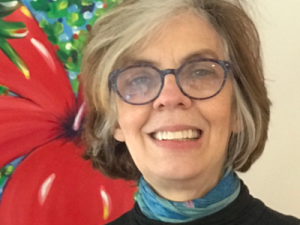Event Actions
AI to Accelerate Scientific Discovery for a Sustainable Future
Abstract:
Artificial Intelligence (AI) is a rapidly advancing field, with remarkable achievements spanning from computer vision and machine translation to world-champion-level Go gameplay, self-driving cars, AlphaFold, and ChatGPT. The ever-growing AI capabilities unlock promising opportunities for progress in various domains. Much of this rapid progress has been driven by data-centric approaches, particularly advancements in deep learning powered by vast labeled and unlabeled datasets. However, despite these impressive milestones, current deep-learning methods are not without limitations. They are almost entirely black boxes, have limited capacity to incorporate prior knowledge or advanced reasoning, and heavily rely on massive amounts of data. These limitations are especially critical for our research on AI for scientific discovery and decision-making for a sustainable future. Addressing these challenges is a crucial driver of our work, integrating first-principles reasoning, deep learning, and optimization techniques. I will discuss our efforts in the emerging interdisciplinary field of Computational Sustainability, which seeks to develop computational models and methods that balance environmental, economic, and societal needs. I will present examples of computational sustainability challenges, including biodiversity conservation, strategic planning for hydropower dams in the Amazon Basin, and discovering renewable energy materials. I will highlight our Deep Reasoning Networks (DRNets) framework, which seamlessly integrates deep learning and reasoning via an interpretable latent space for incorporating prior knowledge. and tackling challenging problems. DRNets requires only modest amounts of (unlabeled) data, in sharp contrast to standard deep learning approaches. DRNets reaches super-human performance for crystal-structure phase mapping, a core, long-standing challenge in materials science, enabling the discovery of solar-fuels materials. DRNets is a general framework for integrating deep learning and reasoning for tackling challenging problems. Using a simpler domain, we also solve variants of the Sudoku problem for an intuitive demonstration of our approach. I will also identify cross-cutting computational themes and challenges AI poses, emphasizing the potential for groundbreaking advancements in pursuing a sustainable future.
About the Speaker:
Carla Gomes is the Ron and Antonia Nielsen Professor of Computing and Information Science at Cornell University, where she directs the Institute for Computational Sustainability and co-directs the AI for Science Institute. She holds a Ph.D. in Artificial Intelligence from the University of Edinburgh. Gomes’s research centers on AI, focusing on large-scale knowledge representation, reasoning, machine learning, decision-making, and optimization. She has played a vital role in establishing and nurturing the emerging field of Computational Sustainability, which seeks to leverage AI and computational methods to tackle critical environmental, economic, and societal challenges, guiding us toward a sustainable future. Gomes was the lead PI of two NSF Expeditions in Computing focusing on Computational Sustainability. She has authored over 200 publications, which have appeared in venues spanning Nature, Science, and a variety of conferences and journals in AI and Computer Science, including five best paper awards. Gomes was named the “most influential Cornell professor” by a Merrill Presidential Scholar (2020). Gomes was also the recipient of the Association for the Advancement of Artificial Intelligence (AAAI) Feigenbaum Prize (2021) for “high-impact contributions to the field of artificial intelligence, through innovations in constraint reasoning, optimization, the integration of reasoning and learning, and through founding the field of Computational Sustainability, with impactful applications in ecology, species conservation, environmental sustainability, and materials discovery for energy” and of the 2022 ACM/AAAI Allen Newell Award, for contributions bridging computer science and other disciplines. Gomes is a Fellow of the Association for the Advancement of Artificial Intelligence (AAAI), a Fellow of the Association for Computing Machinery (ACM), and a Fellow of the American Association for the Advancement of Science (AAAS).
